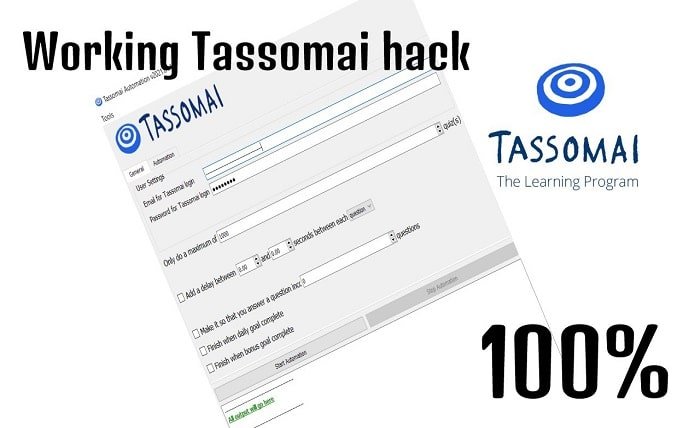
Introduction
The term “Tassomai cheat” has been circulating among students who use the educational tool called Tassomai, especially in the context of GCSE revision. Tassomai is a popular online platform designed to help students with their revision through quizzes and bite-sized learning sessions. However, some students have been searching for ways to gain an advantage or shortcut the system to improve their scores. The “Tassomai cheat” refers to various methods that some students employ in an attempt to bypass the hard work that the platform encourages, often in the pursuit of higher scores.
But before diving deeper into the world of the Tassomai cheat, it’s important to discuss how the platform itself works and whether these cheats can truly help in the long run. In this post, we will explore different techniques, their ethical implications, and provide you with tips on how to maximize the effectiveness of Tassomai without resorting to cheating.
How Tassomai Works
Tassomai is an online revision tool that uses spaced repetition to help students memorize and retain information. The platform offers a vast collection of subjects, with GCSEs being a key focus. Students can create personalized learning schedules, and the system adapts based on their progress, ensuring that they are focusing on areas where they need the most improvement.
To understand the allure of a “tassomai cheat,” it’s crucial to know that the platform tracks your learning progress over time, offering feedback to help guide your revision sessions. Some students might attempt to bypass the system’s natural learning curve, but it’s important to consider whether this will actually be beneficial for their academic success. Let’s take a closer look at the possible methods some students try.
The Common “Tassomai Cheat” Methods
There are several methods that have gained popularity among students looking to exploit the system for higher scores, often referred to as the “Tassomai cheat.” These methods might seem harmless at first, but they can undermine the platform’s effectiveness.
- Using External Answer Guides: One of the most common “Tassomai cheat” strategies is searching for answer keys to the platform’s quizzes. Students often look for websites or forums where answers are shared in an effort to speed up their revision process.
- Manipulating Time Spent on Tasks: Some users may attempt to skip through quizzes too quickly to gain rewards without actually absorbing the material. This method might give the appearance of progress, but it sacrifices learning for the sake of scoring.
- Replaying Questions: Replaying previously answered questions, especially the ones they got right, allows students to rack up correct answers without genuinely revising the material. While this method may boost scores temporarily, it doesn’t result in meaningful learning.
The Ethical Implications of a “Tassomai Cheat”
While the “Tassomai cheat” methods may seem appealing to some, they come with significant ethical concerns. Using these cheats can lead to unfair advantages, which ultimately undermine the integrity of the educational process. Moreover, bypassing the system means that students may not be truly learning the material, which can have detrimental long-term effects on their knowledge and exam performance.
Cheating in any form, including using a “Tassomai cheat,” can also damage your academic reputation. Schools and educators rely on the results provided by platforms like Tassomai to assess your understanding. If you are caught using cheats, it can tarnish your record and possibly even lead to academic penalties.
Why Cheating on Tassomai Is Not Worth It
Though the idea of using a “Tassomai cheat” might seem tempting, the disadvantages far outweigh the benefits. Cheating provides no real long-term value in terms of actual learning or mastery of the subject matter. By attempting to shortcut the system, you miss out on gaining a deep understanding of the content, which is critical for your overall academic performance.
Additionally, using a “Tassomai cheat” reduces your chances of developing effective study habits. Genuine learning comes from understanding, practicing, and testing knowledge repeatedly. When you cheat, you skip these essential steps, and your confidence in your abilities will be limited. Ultimately, this harms both your academic growth and your exam results.
How to Use Tassomai Effectively Without Resorting to Cheats
Instead of relying on shortcuts or cheats, the best approach to using tassomai is to adopt effective study strategies that work with the platform’s design. Here are some tips to make the most of your Tassomai experience:
- Stay Consistent: Set aside regular time for your revision, following the schedule Tassomai recommends. Consistency is key to retaining information and reinforcing learning.
- Focus on Weak Areas: Pay attention to the areas where Tassomai highlights your weaknesses. The platform adapts to your progress, so taking the time to revisit challenging material will help you improve.
- Take Breaks: Don’t try to cram all your revision into one session. Break your study time into manageable chunks to avoid burnout and keep your mind fresh.
- Use Spaced Repetition: Let the platform’s spaced repetition system work for you. Trust the process of revisiting material at increasing intervals, as this method has been scientifically proven to enhance memory retention.
- Engage with Additional Resources: While Tassomai is a fantastic tool, it shouldn’t be your only resource. Engage with textbooks, online courses, and practice papers to supplement your learning.
By following these strategies, you can achieve real progress in your revision without ever needing to consider a “Tassomai cheat.”
The Role of Parents and Teachers in Supporting Students
Parents and teachers play an essential role in ensuring that students are using Tassomai effectively and ethically. It’s crucial that they emphasize the importance of honest revision and help students develop healthy study habits.
Teachers can monitor students’ progress on the platform and provide additional support for those struggling with certain topics. Parents, on the other hand, can help create a conducive study environment at home and encourage their children to stay disciplined with their revision routines.
When students have the support of their parents and teachers, they are less likely to fall into the trap of cheating. Instead, they are more likely to develop the skills and knowledge necessary for academic success.
Conclusion
In the end, the idea of using a “Tassomai cheat” is short-sighted and counterproductive. While it may seem like a quick fix to achieve higher scores, it ultimately diminishes the purpose of the platform: effective learning and long-term retention. Instead of seeking shortcuts, it’s far more rewarding to engage with the material genuinely and make use of the platform’s features to maximize your revision.
Remember, the goal of using Tassomai is to understand and retain information to perform well in exams and beyond. So, instead of cheating the system, trust the process, be consistent, and embrace your learning journey.
FAQs
1. What are the most common “Tassomai cheats”?
The most common cheats involve using answer guides from external sources, manipulating the time spent on tasks, and replaying already answered questions for easy points.
2. Can I cheat on Tassomai and still perform well in exams?
Cheating on Tassomai might boost your scores temporarily, but it won’t help you retain the knowledge you need for exams. Genuine learning is key to long-term success.
3. Is using a “Tassomai cheat” ethical?
No, using a “Tassomai cheat” is not ethical. It undermines your learning experience, compromises academic integrity, and can lead to penalties.
4. How can I improve my performance on Tassomai without cheating?
To improve, stay consistent with your revision, focus on areas of weakness, take breaks, and trust the platform’s spaced repetition system.
5. Can parents and teachers help with my Tassomai revision?
Yes, both parents and teachers can support you by monitoring your progress, providing additional resources, and helping you stay disciplined with your study routine.





